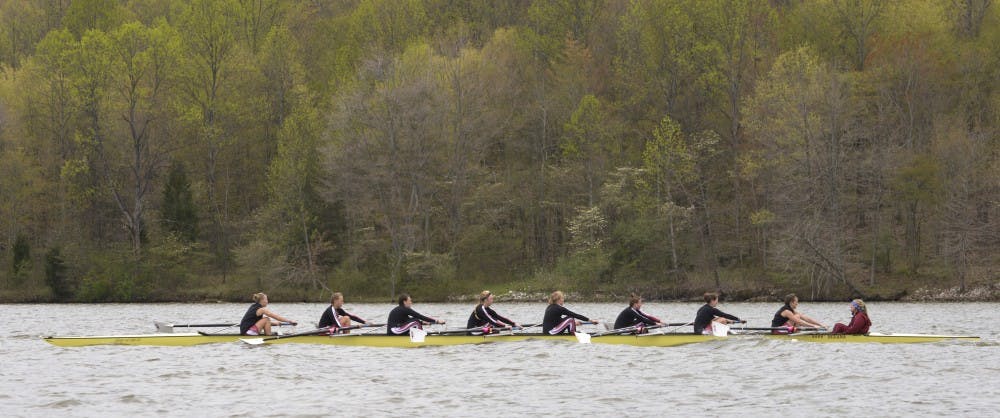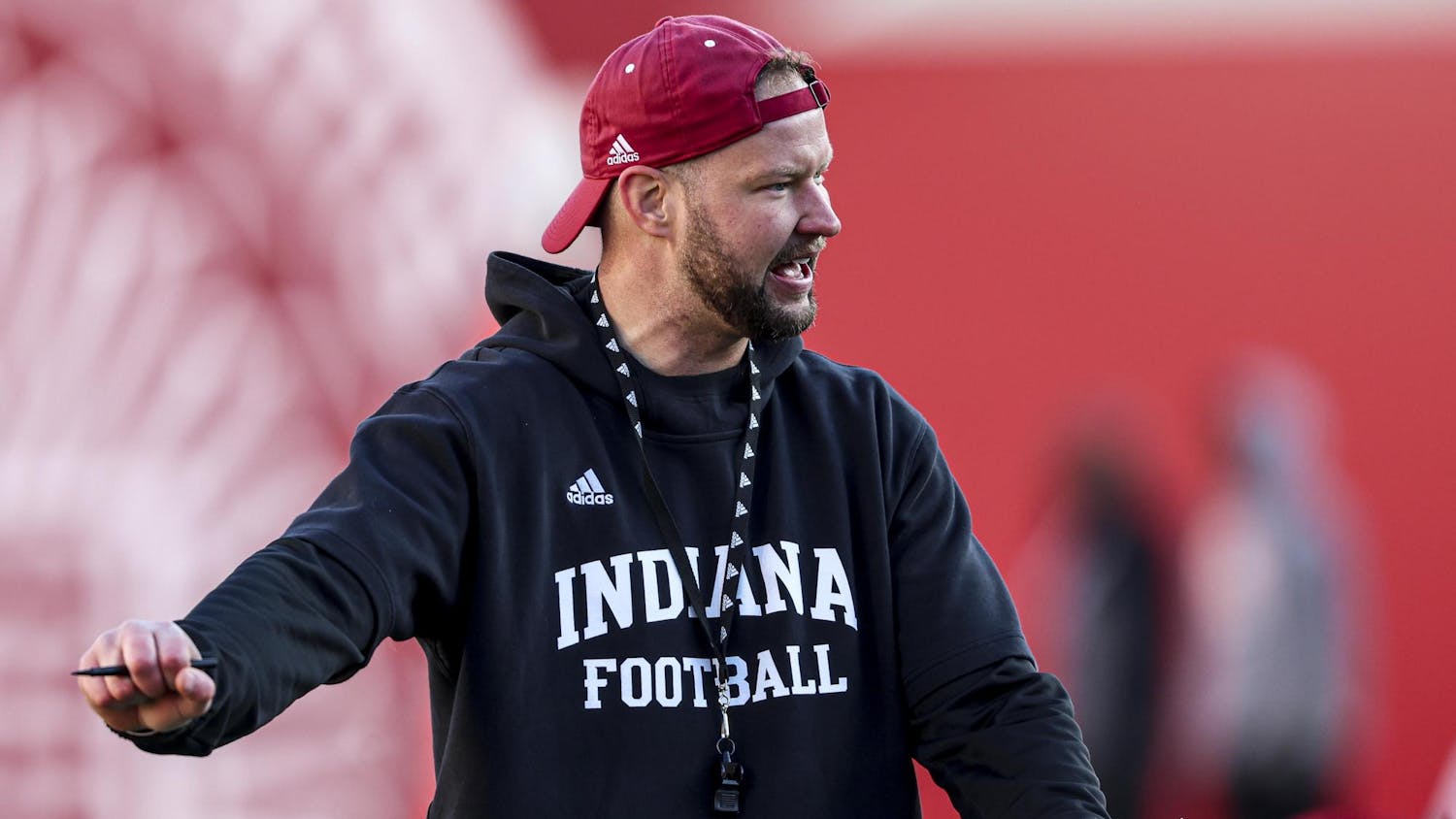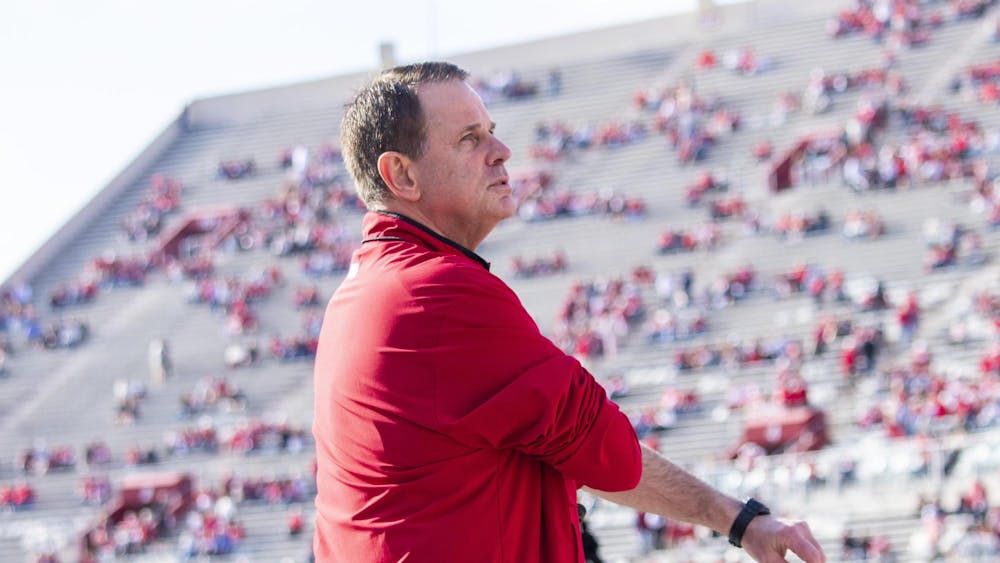Bridget Smith joined the rowing team in the 2012-13 academic year and wasn’t prepared for what was about to happen.
If all things went according to plan, she would’ve graduated from IU last year. Smith is now attempting to get her associates degree at a community college near her hometown of Vienna, Virginia.
Smith said she had to return home because she lost her scholarship due to injuries. She’s the second IU rower to make these sorts of allegations in recent weeks.
Her story is similar to that of Katlin Beck, the former IU rower who alleged that IU attempted to cover up her injuries and forced her to practice despite the pain.
Both rowers dealt with severe injuries while at IU.
Smith’s problems started her freshman season at IU when she was diagnosed with three slipped discs in her spinal cord. She found out spinal surgery was needed in order to be able to row.
However, if the surgery wasn’t successful, there was a chance she wouldn’t be able to walk again.
“I was told by IU doctors that even if the surgery went 100% well, there would only be a 70% chance that I would be able to row again,” Smith said. “The long term effects of having the surgery wasn’t worth it to keep rowing.”
Smith had heard some of the horrors of spinal surgery and wasn’t willing to take that risk. She also said she was already hesitant to get the surgery because of some previous traumatizing experiences with the same doctor. She could not remember the name of the doctor when asked.
“I had already had a botched procedure with the doctor that would’ve done the surgery,” Smith said. “I got a cortisone injection, something went wrong and I had sciatic nerve pain down both legs.”
IU trainers and doctors told Smith she wouldn’t be able to row again since she chose not to have the surgery. This occurred during her sophomore season and that’s when she says the quality of her medical attention decreased, as coaches realized she wouldn’t be of any use to the team in the future.
“Once that point was realized, I was seen as an empty money pit,” Smith said. “They thought, ‘why should we spend time, money, resources on getting this person better when we have other athletes who can bounce back from their injuries and row again.’”
After electing not to have the surgery, Smith felt like she was pushed to the back burner by the IU coaching staff.
IU Athletics would not comment on her specific situation.
“Although we will not comment on any specific medical case, we are confident that Indiana University provides and has provided quality medical care to our students participating in intercollegiate athletics,” IU Athletics said in a statement. “Any concern relative to medical or other treatment that has been brought to our attention has been immediately addressed with the highest level of seriousness and thoroughness, and we will continue to do so with any concerns raised with us.”
In a meeting with Coach Steve Peterson, Smith said he questioned her effort, dedication and focus because trainers reported she was being too social during her rehabilitation. Smith said she was simply a social person trying to talk to her teammates and it didn’t take any focus away from her work.
“I had a meeting with Steve and it was discussed that I wouldn’t be able to keep my scholarship anymore,” Smith said.
Smith said she didn’t understand why an injury that was out of her control meant she wouldn’t be able to keep her scholarship. Per IU’s Student-Athlete Bill of Rights, “scholarship terms will not be reduced because of a student-athlete’s injury, illness, or physical or mental condition nor on the basis of a student-athlete’s ability, performance, or contribution to the team’s success.”
During her freshman year, one of the trainers notified Smith that someone saw her lifting weights, but she denied the allegation. However, that incident went on her record and was brought up by Peterson a year and a half later during their meeting.
Smith was prohibited from lifting weights while she was attempting to recover so lifting weights at that time would have violated the rules of her rehabilitation.
“That didn’t even happen,” Smith said. “If I would’ve realized it was a big deal I would’ve set the record straight.”
According to Smith, she never lifted weights in the gym and was in the training room the entire time. She said didn’t realize it was significant enough to have her scholarship away.
Smith remembers a specific team party during her sophomore year where she had to step outside to cry. She couldn’t help herself after all the trauma caused by IU, she said.
“I missed out on a lot of the team building activities because I had to be in another building,” Smith said. “You’re ostracized from everything. I felt like my life was falling apart and I just wanted to go home.”
After Smith’s scholarship was taken away, she didn’t have the money to stay enrolled at IU and she transferred to a community college near her hometown.
“Only two of my credits transferred so I’m basically starting back at square one,” Smith said. “It’s derailed my whole life.”
When Smith returned to Virginia for community college, she visited her regular physician and was immediately put on antidepressants.
“It’s not something that’s unique to IU, it’s something on the whole NCAA. There should be more protection for athletes that get injured,” said Smith. “I’d like it to be seen for all division one athletes because injuries happen for all athletes that rely on scholarships, instead of being tossed to the side.”
One of Smith’s teammates Emily Barber had nothing but positive things to say about IU athletics and the rowing team. Barber vehemently defended IU and the medical staff in a letter she released following the recent allegations.
Like many athletes, Barber had multiple injuries and illnesses during her time at IU. She transferred from Indiana State coming off of knee surgery on both knees and was hesitant to row at IU.
“A lot of coaches would’ve said we don’t need you,” Barber said. “But the coaches here said they would adapt as long as I did my physical therapy.”
Barber’s doctor, medical director Andy Hipskind, was also the doctor of former rower Katlin Beck, who was the first to speak out with allegations against IU athletics.
While Beck blamed Hipskind for being negligent and providing the wrong diagnosis, Barber credits him for her life.
In August 2013, Barber came down with a simple fever, which she wasn’t concerned by. She notified Hipskind and he forced her to get blood work done in order to be cautious. It turned out that Barber’s white blood cell count was low and she was diagnosed with West Nile Virus and a tick borne illness, ehrlichiosis.
Those illnesses could potentially be fatal if not caught early enough in the process, which is why the immediate care was imperative.
“The staff here really truly cared about me and tried to figure everything out,” Barber said. “Andy Hipskind did a fantastic job because he treated me like he would his own daughter.”
Barber also said she was kept out of practice and workouts for longer than she would’ve liked.
Barber, a current member of the team, also provided some insight on how the coaches and rowers are all handling the allegations. Barber said Peterson is just trying to keep everything normal for the team even in the midst of preparing for the NCAA Championship regatta.
“I don’t think anything needs to be changed with the program,” Barber said. “Every girl that I’ve talked to, on the team, is on this side of the story, not Katlin Beck’s.”






